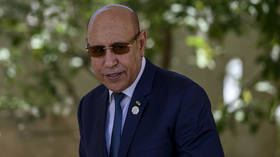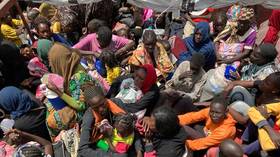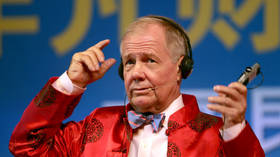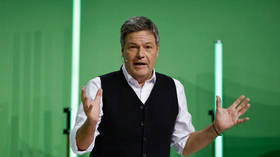Another Sahel state to elect president

Mauritanians go to the polls on Saturday to elect a president from a list of seven candidates, including the incumbent, Mohamed Ould Ghazouani. Nearly two million people have registered to cast their ballots, data published on the website of the West African nation’s Independent Election Commission (CENI) indicates.
The Mauritanian election follows that of its Sahel neighbor Chad, which elected a civilian government last month after three years of military rule.
President Ghazouani, a former army chief, came to power in 2019, marking the first democratic transition in a country with a long history of coups and military-backed governments dating back to 1978. He won 52% of the vote.
Analysts predict that Ghazouani will win the June 29 elections, citing the popularity of his El Insaf party in the desert nation. The ruling coalition secured a sweeping majority in the legislative elections last year, winning 107 of the 176 seats in the National Assembly.
The president, whose government has been accused of corruption, is up against contenders like anti-slavery activist Biram Dah Abeid, who finished second in the 2019 election with more than 18% of the vote.
Abeid is challenging Ghazouani on his human rights record and the alleged marginalization of the country’s black African population. Despite slavery being abolished in 1981 and criminalized in 2007, forms of slavery still exist in some parts of the country, according to a 2023 UN report.
The former French colony, home to around 4.5 million people, is rich in natural resources such as iron ore, copper, zinc, phosphate, gold, oil, and natural gas. The country’s vast territory and availability of solar and wind energy put it in line to produce eight million metric tons of green hydrogen annually, making it an increasingly important energy hub, according to the Africa Center for Strategic Studies. Despite this, almost 60% of the population lives in poverty, according to the United Nations, either working as farmers or employed in the informal sector, with the youth continuously attempting to cross the Atlantic to seek opportunities in Europe.
If re-elected, Ghazouani has promised to speed up investment to promote an energy and mining boom. He intends to establish a national agency to coordinate training, employment, education, and financing for small- and medium-sized businesses in order to increase youth employment.
Ghazouani, who currently chairs the African Union, has also used his campaign to highlight Mauritania’s security commitments, promising to tackle militant threats that are escalating in several of its Sahel neighbors, including Mali.
“I advise against anyone, an internal or external party, from thinking of destabilizing Mauritania or its territorial integrity,” he said during the campaign.
While France has been expelled from military-ruled Mali, Burkina Faso, and Niger, Mauritania has remained a Western ally in the fight against jihadists in the Sahel, accepting assistance from Paris and other nations.













